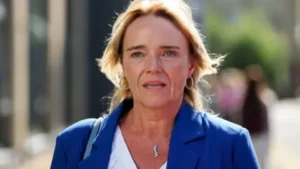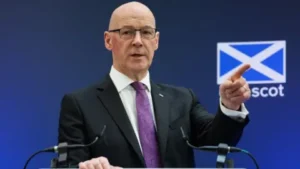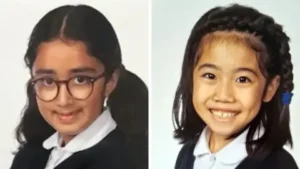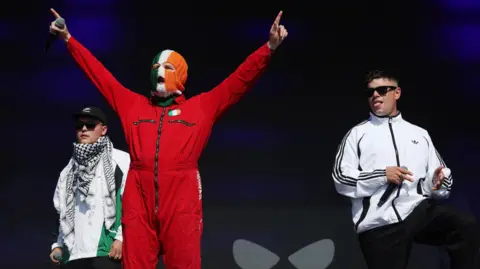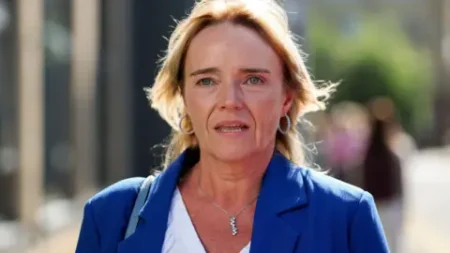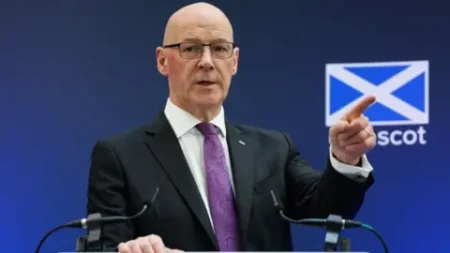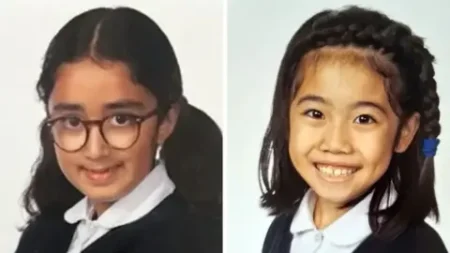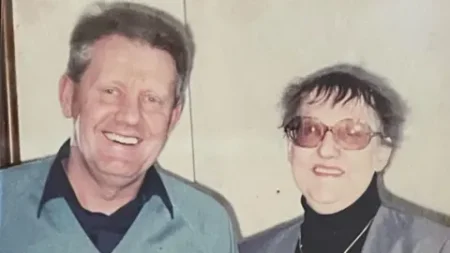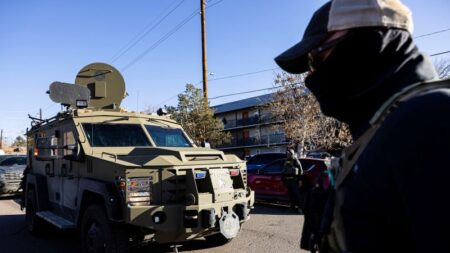In a recent turn of events, Avon and Somerset Police have officially stated that no further action will be taken against the Irish language rap trio, Kneecap, concerning their performance at the Glastonbury music festival. This announcement follows an investigation initiated last month, which was sparked by remarks made on stage by the group.
The police had sought guidance from the Crown Prosecution Service before concluding that there was “insufficient evidence to provide a realistic prospect of conviction for any offence”. This finding has put an end to the days of speculation and concern surrounding the band’s actions during their performance. Kneecap characterized the investigation as a form of “political policing intimidation”, asserting that their set was intended as a “celebration of love and solidarity”.
This situation unfolded against a backdrop of growing controversy surrounding Kneecap, particularly due to their vocal pro-Palestinian stance. Throughout the last few weeks, they faced significant backlash, including calls from public figures such as Sharon Osbourne to have their US visas revoked over messages displayed during their Coachella performance. The question of whether the group should perform at Glastonbury itself stirred public discussion, with even the UK Prime Minister weighing in, deeming it “inappropriate”.
Moreover, one member of Kneecap, Liam Óg Ó hAnnaidh, has been involved in legal troubles, facing charges related to a terror offense. The charges stem from an event in November where he allegedly displayed a flag representing Hezbollah, a group designated as a terrorist organization. Ó hAnnaidh, however, has firmly denied these accusations despite the implications they carry.
Despite the controversies surrounding them, Kneecap did indeed perform at Glastonbury, although the BBC chose not to livestream their act, which has drawn further scrutiny and discussion regarding media freedom and artistic expression. In the performance that took place, Kneecap echoed sentiments of defiance against the accusations laid upon them, stating that their audience understood their intent and that no law had been breached during their performance.
Adding to the tension surrounding the festival, the police also indicated that they are still investigating the pop-punk duo Bob Vylan. This particular act drew significant attention at Glastonbury after leading the audience in chants against the Israeli Defense Forces (IDF). Culture Secretary Lisa Nandy described the situation as “appalling and unacceptable,” and the BBC publicly apologized for not interrupting the live broadcast during those moments.
While the exact elements of Kneecap’s and Bob Vylan’s performances that led to the police investigation remain undefined, it has been established that these performances were categorized as public order incidents. This classification raises further discussions about the boundaries of artistic expression, political messages in music, and the implications of policing artistic content.
In summation, the cessation of police investigation into Kneecap serves as a pivotal moment in the discourse around political expression in art. The band’s assertion that their performance was a celebration of culture and solidarity highlights the complexities of artistic freedoms amidst politically charged environments. As more details continue to emerge regarding public reactions and police responses, the events at Glastonbury will likely remain a focal point of discussion within the realms of music, politics, and social commentary.

